Clinical Laboratories
UC Davis Veterinary Medicine is proud to offer a wide variety of laboratory services to veterinarians around the world to assist in diagnostics of their patients. Services are varied, ranging from clinical diagnostics to genetic testing to infectious disease screenings. Each lab within the School of Veterinary Medicine operates independently; for more information about each lab and the services they offer, please select from the list below.
Some of the laboratories also serve animal owners and breeders, as noted below.
Visit our Centers, Institutes, Programs, and Laboratories page for scientific research laboratories (no commercial services).
Research Support Laboratories

Clinical Diagnostic Laboratories, veterinary hospital
Services include Chemistry, Hematology/Cytology, Immunology/Virology, Parasitology, and Microbiology.

Real-time PCR Research and Diagnostics Core Facility
Detection of bacteria, fungi, parasites, and viruses using RT-PCR methods in clinical samples.

Shapiro Laboratory
Detection and molecular characterization of protozoan parasites in environmental and veterinary clinical samples.
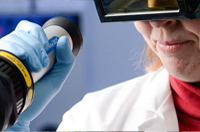
Veterinary Genetics Laboratory (VGL)
Genetic testing and animal forensic services. VGL serves veterinarians, animal owners, and breeders.
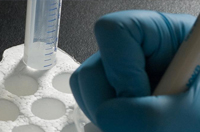
Amino Acid Laboratory
Taurine and amino acid testing in blood, urine, or food.
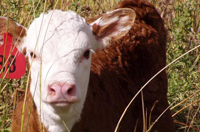
California Animal Health and Food Safety Laboratory System (CAHFS)
Wide variety of services to protect the health of California’s livestock and poultry.
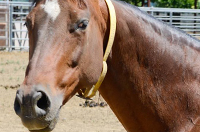
Anatomic Pathology Service, veterinary hospital
Provides necropsy and biopsy diagnostic services.

UC Davis Coccidioidomycosis Serology Laboratory
Serodiagnostic and consultative services for suspected or established cases of coccidioidomycosis (valley fever).
Research Support Laboratories
UC Davis Veterinary Medicine supports the diverse research community of UC Davis, as well as outside public and private entities, with a number of independently run laboratories. Each lab actively engages with researchers and can assist in developing a research plan to ensure best use of time and research resources. For more information about each lab and the services they offer, please select from the list below.

Clinical Diagnostic Laboratories, veterinary hospital
Services include Chemistry, Hematology, Immunology/Virology, Parasitology, and Microbiology.

Atwill Water & Foodborne Zoonotic Disease Laboratory
Detection of water and foodborne illness in water, sediment, and fecal samples.
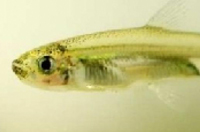
Aquatic Health Program
Screening the effects of contaminant and contaminant mixtures specific to aquatic organisms.
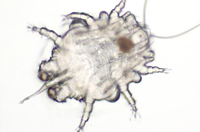
Comparative Pathology Laboratory (CPL)
Provides clinical diagnostics, pathology services, and health surveillance for laboratory animals.
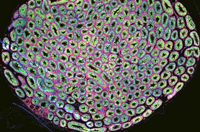
Digital Microscopy and Whole Slide Imaging Laboratory
Digital microscopy services to support education, research, and service mission.
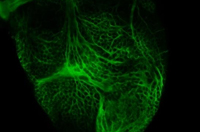
Health Sciences District Advanced Imaging Facility
Confocal and multi-photo microscope services.

J.D. Wheat Veterinary Orthopedic Research Laboratory (VORL)
Services include mechanical testing of orthopedic implants, mineralized tissue processing, MicroCT specimen scanning, high-density radiographs.

Mouse Biology Program
Provide access to all essential services one would need to develop, plan, execute, and analyze a research project involving genetically-altered mice.
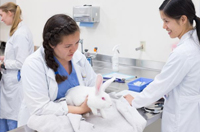
Real-time PCR Research and Diagnostics Core Facility
Diagnoses infectious disease and pathogens (bacteria, fungi, parasites, viruses) using RT-PCR methods.
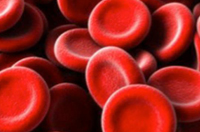
Redox Biology Laboratory
Offers redox and metabolomics diagnostic services to researchers.
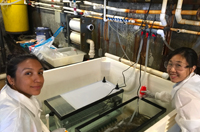
Shapiro Laboratory
Detection and molecular characterization of protozoan parasites in environmental and veterinary clinical samples.
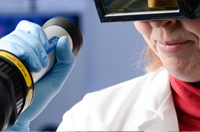
Veterinary Genetics Laboratory (VGL)
Genetic testing and animal forensic services.
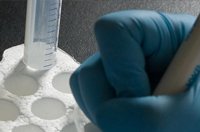
Amino Acid Laboratory
Taurine and amino acid testing in blood, urine, or food.
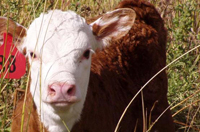
California Animal Health and Food Safety Laboratory System (CAHFS)
Wide variety of services to protect the health of California’s livestock and poultry.

Clinical Endocrinology Lab
Provides hormonal testing, particularly reproductive hormones, for pregnancy and disease.
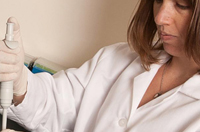
Anatomic Pathology Service, veterinary hospital
Provides necropsy and biopsy diagnostic services.

Equine Infectious Disease Research Laboratory
Offers quantitative PCR for molecular investigations of outbreaks in equine infectious diseases.
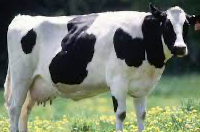
Food Animal Residue Avoidance Databank (FARAD)
Provides a variety of services related to chemical and drug contamination in food animals; mostly educational and advisory
Biological Product Manufacturing

Biological Media Services
Biological Media Services (BMS) has been manufacturing microbiological growth media, biological reagents, and cell culture media for the University and the public since 1949. Currently, BMS makes up to 3000 agar media plates a day using automated plate pouring equipment as well as specially hand poured plates and tubed culture media. BMS also specializes in, and focuses on, creating custom medias by working with the customers and researchers to design and manufacture custom media, quickly providing the research scientist media to conduct novel work.

